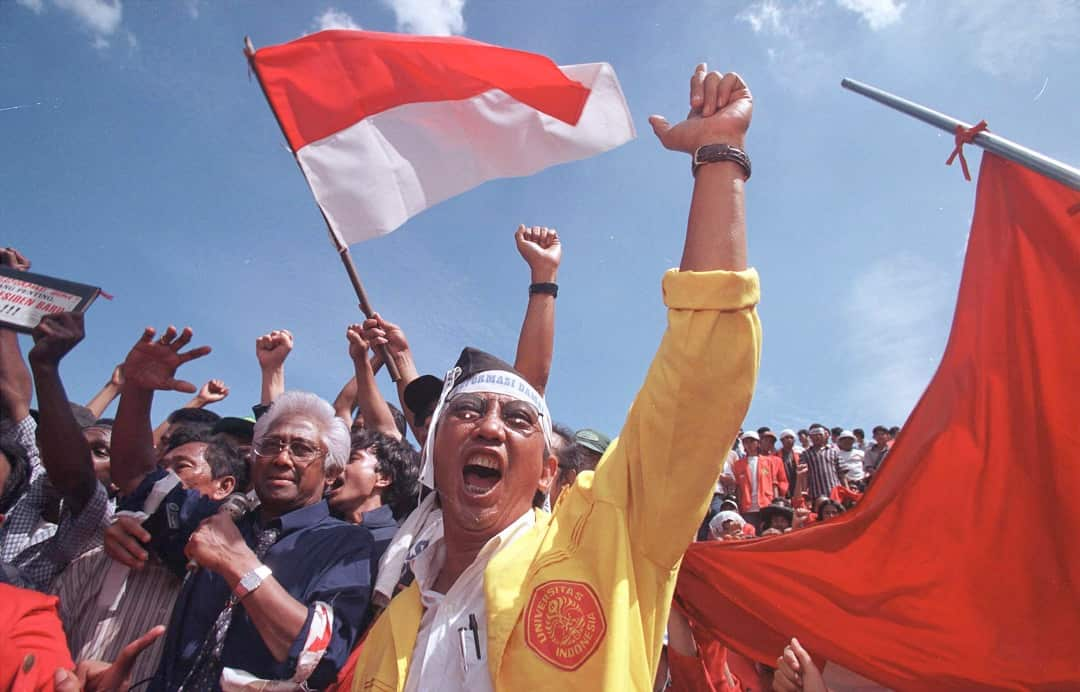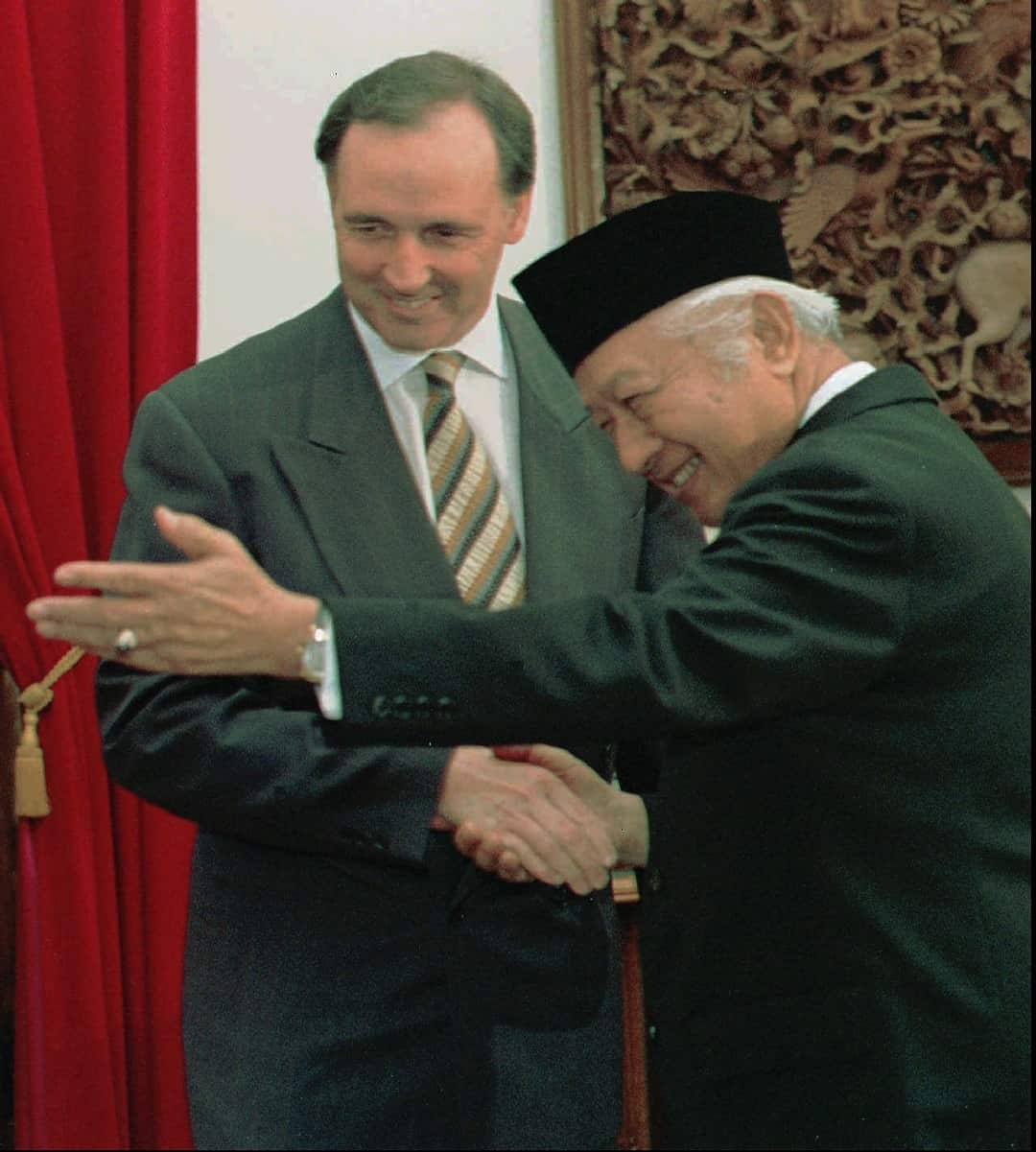It has been 20 years since the resignation of former Indonesian leader General Muhammad Suharto, a tumultuous period when more than 1,000 people are estimated to have been killed in riots and protests.
And as the country continues to grapple with Suharto's three-decade rule, a meme has become a hit on the internet and public transport.
It features a smiling Suharto above a caption that reads "How Y'all Doing? Wasn't it better during my time?"
While the meme speaks to the growth and relative stability under Suharto's rule, it ignores the far more controversial elements of his tenure.
Suharto was never held to account for the looting of billions of dollars from state coffers, leading Transparency International to name him the most corrupt world leader in recent history.
And Human Rights Watch says Suharto presided over "media censorship, tight restrictions on freedom of association and assembly, a highly politicised and controlled judiciary, widespread torture, attacks on the rights of minorities, massacres of alleged communists, and numerous war crimes".

Protesters demand the resignation of Suharto on May 20,1998 in Jakarta. Source: Getty
Suharto's 1998 resignation came at the height of the Asian economic crisis as Indonesia was paralysed by riots, food shortages, a plunging rupiah currency and mass unemployment.
The violence linked to his government's collapse is another dark chapter which Indonesia has yet to address in any meaningful way.
Parents wait for justice
Almost every week, Asih Widodo attends a vigil outside Indonesia's presidential palace seeking justice for his son who died in the violence after the fall of Suharto.
Widodo's son, engineering student Sigit Prasetyo, died in a hail of army gunfire aimed at protesters.
"I was at work when I got a phone call that my son was in a hospital - I knew immediately in my heart he was gone," Widodo told AFP at a recent vigil alongside other bereaved parents demanding answers over the death of protesting students.
"My son was murdered by the army."
Ethnic Chinese Indonesians bore the brunt of the bloodshed in the last days of Suharto, with women cowering in their homes for days as rape squads - purportedly led by army thugs - roamed Jakarta's streets.
Many died trapped in burning buildings as angry mobs - resentful of their relative financial success - ransacked Chinese-owned stores, smashed windows and set fire to cars as the government teetered on the verge of collapse.

Former Australian Prime Minister Paul Keating and Former Indonesian President Suharto. Source: AAP
Ayu Puspita was 30 when crowds stormed through the capital targeting Chinese-owned shops.
"It was so chaotic. Cars were being burned, motorcycles were toppled over - it was just so scary," said Puspita at her restaurant in Glodok, known as Jakarta's Chinatown.
'The sound of sirens scares me'
Subianto, a 67-year-old parking attendant who has worked in Chinatown for some five decades, said he watched in shock as parts of the city went up in flames.
"There were no police, no soldiers. People were looting everywhere. Trucks were coming to steal things," he said.
The looting unfolded under the noses of the security forces. Their failure to intervene has fuelled suspicions of military involvement ever since.
Some buildings in Jakarta's Chinatown remain damaged even decades later.
"The sound of sirens scares me. I'm terrified every time I see a large group of people approaching," Puspita said.
"I didn't choose where I was born or what my ethnicity is."
Efforts to hold members of the then-government and military accountable for the death of ethnic Chinese and others have gone nowhere.
But Widodo, who rides a motorbike emblazoned with the words "My son was murdered by the army", will keep demanding answers.
"This country does not care, but I do," the 67-year-old said.
"I'll keep fighting as long as I am still alive."
- Additional reporting by Nick Baker.


